Now that we have sought to glimpse into the vast and expansive realm of our rooted elder kin I feel it would be apt if we endeavor to learn more about their branching, interconnected and alchemical master allies (and our even more ancient kin) in the queendom of Fungi.
The "Fungal Queendom" (as author, educator and mycological pioneer Peter McCoy calls it) is a truly ancient community of organisms which often forms symbiotic relationships with other organisms capable of contributing to a mutually beneficial relationship. It is no wonder that when ingested, many of these fungi have the ability to provide excellent nutrition and augment/boost our general health/resilience (while simultaneously providing our immune system with compounds that assist in rendering pathogenic organisms inert that are present in the human body).
The genetic lineage of fungi reaches back to a time before terrestrial forests and mammals existed on the Earth.. this makes many of these fungal beings powerful allies for healing and maintaining optimal health (both of the ecosystems within and around us). The fungi have seen and been exposed to much more than homosapiens have, and thus their immune response and resilience to environmental pressures far surpass that of our species.
There are specific strains of fungi that can remove heavy metals from soils, clean up oil spills (in water or on land), eat and biodegrade plastic (accelerating its decomposition drastically), and even some species that can eat gamma radiation (remediating soils in areas where nuclear waste spills and meltdowns have happened!). This is a process called “Mycoremediation” and it is something I explore more in-depth in my book.
As stated above, we can also team up with fungi to remediate (detox/ heal) the ecosystem that is the human body. Fungal medicine opens up many paths to healing and honing the human body. There are specific species that can facilitate the removal of toxins, render inert invading pathogens and expel them via the action of fungi and the compounds they create. Fungal medicines are very effective for healing and optimizing health in the human body as there are specific species that offer fungal compounds that are anti-tumor, anti-bacterial, heavy metal chelating, neurologically regenerating and immune system strengthening to name a few.
Thus, these are ancient, learned and powerful beings that we should seek to forge long term alliances with (each in our own way).
Pursuant to this task of embracing increased levels of resilience, expanding our understanding of the community of life we are intrinsically connected to and learning to wield tools that can build a better future for those that call this world after we are gone (through symbiosis and biomimicry) I now open up the poll to ask which myco-centric book we should all read in the months of October and November (which I will also review).
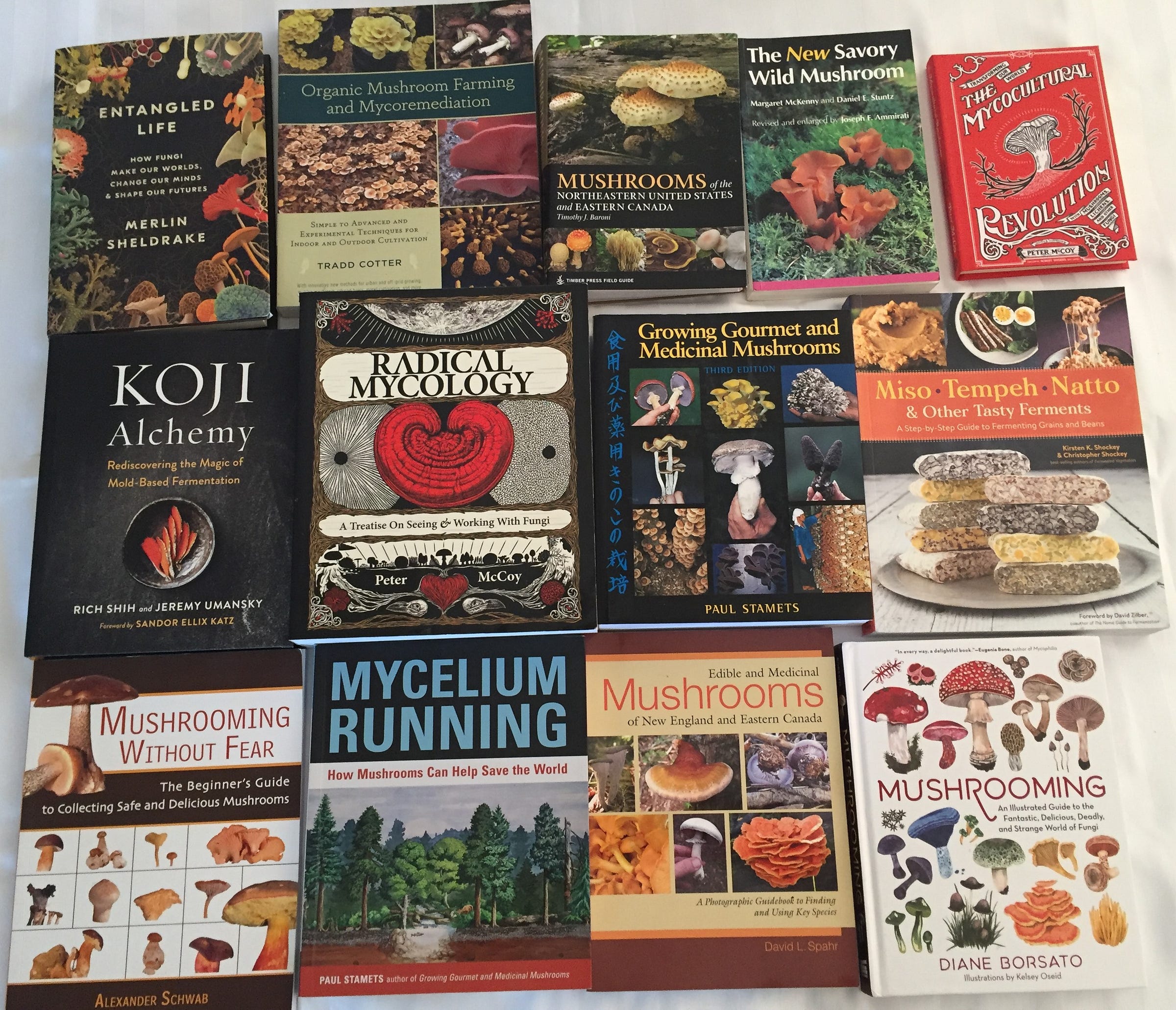
Here are the books I have as suggestions for October and November. If you would like to suggest any additions to the running in the poll (books that pertain to fungi/mycology as the central focus) please share those in a comment and i`ll add them to the poll.
The following are my suggestions for books on the wonderful world of fungi.
This poll will be active and available to vote on until September 25th.
1. Radical Mycology A Treatise on Seeing and Working with Fungi
2. Entangled Life: How Fungi Make Our Worlds, Change Our Minds & Shape Our Futures Paperback – by Merlin Sheldrake
3. Organic Mushroom Farming and Mycoremediation: Simple to Advanced and Experimental Techniques for Indoor and Outdoor Cultivation Paperback – by Tradd Cotter
4. Koji Alchemy: Rediscovering the Magic of Mold-Based Fermentation (Soy Sauce, Miso, Sake, Mirin, Amazake, Charcuterie) Hardcover – by Jeremy Umansky
5. Mushrooms of the Northeastern United States and Eastern Canada Flexibound – Illustrated, by Timothy J. Baroni
6. Mycocultural Revolution, The: Transforming Our World with Mushrooms, Lichens, and Other Fungi by Peter McCoy
7. The New Savory Wild Mushroom – by Margaret McKenny
8. Growing Gourmet and Medicinal Mushrooms by Paul Stamets
9. Fungarium: Welcome to the Museum – by Ester Gaya
10. Food for Free: 50th Anniversary Edition – by Richard Mabey
11. Lichenpedia: A Brief Compendium – by Kay Hurley
12. The Fungal Pharmacy: The Complete Guide to Medicinal Mushrooms and Lichens of North America by Robert Rogers
13. Mycelium Running: How Mushrooms Can Help Save the World Paperback – by Paul Stamets
14. Puhpohwee for the People: A Narrative Account of Some Uses of Fungi Among the Ahnishinaabeg by Keewaydinoquay
15. Mycophilia: Revelations from the Weird World of Mushrooms by Eugenia Bone
16. Healing Mushrooms: A Practical and Culinary Guide to Using Mushrooms for Whole Body Health by Tero Isokauppila
17. Miso, Tempeh, Natto & Other Tasty Ferments: A Step-by-Step Guide to Fermenting Grains and Beans Paperback – by Kirsten K. Shockey
18. Mushrooming Without Fear – by Alexander Schwab
19. Teaming with Fungi: The Organic Grower's Guide to Mycorrhizae by Jeff Lowenfels
20. Edible and Medicinal Mushrooms of New England and Eastern Canada: A Photographic Guidebook to Finding and Using Key Species by David L. Spahr
21. Mushrooming: The Joy of the Quiet Hunt - An Illustrated Guide to the Fascinating, the Delicious, the Deadly and the Strange by Diane Borsato
22. The Essential Guide to Cultivating Mushrooms: Simple and Advanced Techniques for Growing Shiitake, Oyster, Lion's Mane, and Maitake Mushrooms at Home by Stephen Russell
23. Growing Mushrooms at Home: The Complete Guide to Knowing, Growing and Loving Fungi by Elliot Webb
24. In Search of Mycotopia: Citizen Science, Fungi Fanatics, and the Untapped Potential of Mushrooms by Doug Bierend
25. Fly Agaric: A Compendium of History, Pharmacology, Mythology, & Exploration by Kevin M Feeney
Please offer your own suggestions for additions to the poll for which book (that has a central focus on the topic of Fungi) will be chosen for October and November’s Book Club in a comment below. I will create another poll with any pertinent suggested books in the next couple days.
Fungi are powerful allies for building soil, designing resilient food forests and also for embracing food and health sovereignty.
Medicinal mushrooms differ greatly in their individual healing properties from one mushroom to the next, but despite their individuality, they nearly all have a commonality of optimizing the function our innate immune systems. Mushrooms that boost the immune system are not strictly immunostimulants or immunosuppressants, but often times both, earning them the name “immunomodulators.” Immunomodulators work similarly to adaptogens, but relate only to immune function.
Mushrooms’ immune boosting abilities are highly attributable to the high level of polysaccharides (specifically Beta-glucans, one type of polysaccharide found in abundance in fungi) contained within their cell walls. This class of therapeutically active compounds are most widespread within the mushroom kingdom, and within our bodies they interact with specific fungal-polysaccharide receptors on our immune cells (macrophages, neutrophils, monocytes, and dendritic cells). There is also promising research into other immune system boosting and otherwise beneficial myco-compounds (organic compounds produced by fungi) which fall into the categories of volatile essential oils and terpenoids (such as: volatile monoterpenes, sesquiterpenes, diterpenes , triterpenoids and sterols).
Beyond just healing our body, working with and observing fungi also serves to provide a different kind of healing for the mind and spirit. The following quote speaks to this holistic healing that can be offered to us by our fungal elder species:
"If fungi are the connectors and healers of whole habitats, where can one draw the line considering what their medicine is or how to work with it? Is not the stillness that comes from walking in the woods a form of healing onto itself? .. The collection, processing and sharing of these products are not divided from the end result.
The healing that fungi weave through our lives connect us to place, to people, to culture and kin. These are the subtler medicines that working with fungi provides to enrich the mind, heart and spirit in ways a commercial product never could.
The production of natural medicines is not only a method for redefining one’s relationship with fungi or place, it is also an ancient means for commanding control over one’s body, mind, and sovereignty. By making medicine, each person is offered the chance to claim a degree of liberation from the monoliths of allopathy by personally defining what one’s health can and will look like.
Whereas allopathy may define illness as a collection of symptoms, other healing modalities perceive the human as a blend of unique qualities and interconnected (eco-)systems, each with a number of balance points that can tip unfavorably, causing illness to arise. Fungal medicines help re-align and strengthen the human condition, reminding us that our bodies are not mechanical and merely designed for small pills and standardized prescriptions, but unique beings that are healed most profoundly by the living medicines of nature."
- Peter McCoy (An excerpt from chapter 7 "The Pharmycopeia" of his visionary book: "Radical Mycology: A Treatise on Seeing and Working with Fungi" book cover shown above)
Well I look forward to exploring the wild and wonderful world of Fungi with all of you over the next couple months and I also look forward to hearing what you thought of “The Spirit of Trees: Science, Symbiosis and Inspiration” in the comments section when I post my review later this month.
If you are a new subscriber or missed my past posts on Book Club and are wondering what I am talking about, here is a link to the post where I introduce and describe the concept and intent behind this series:


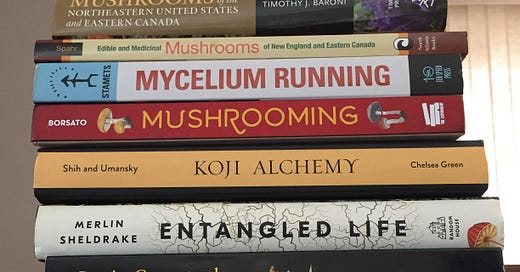







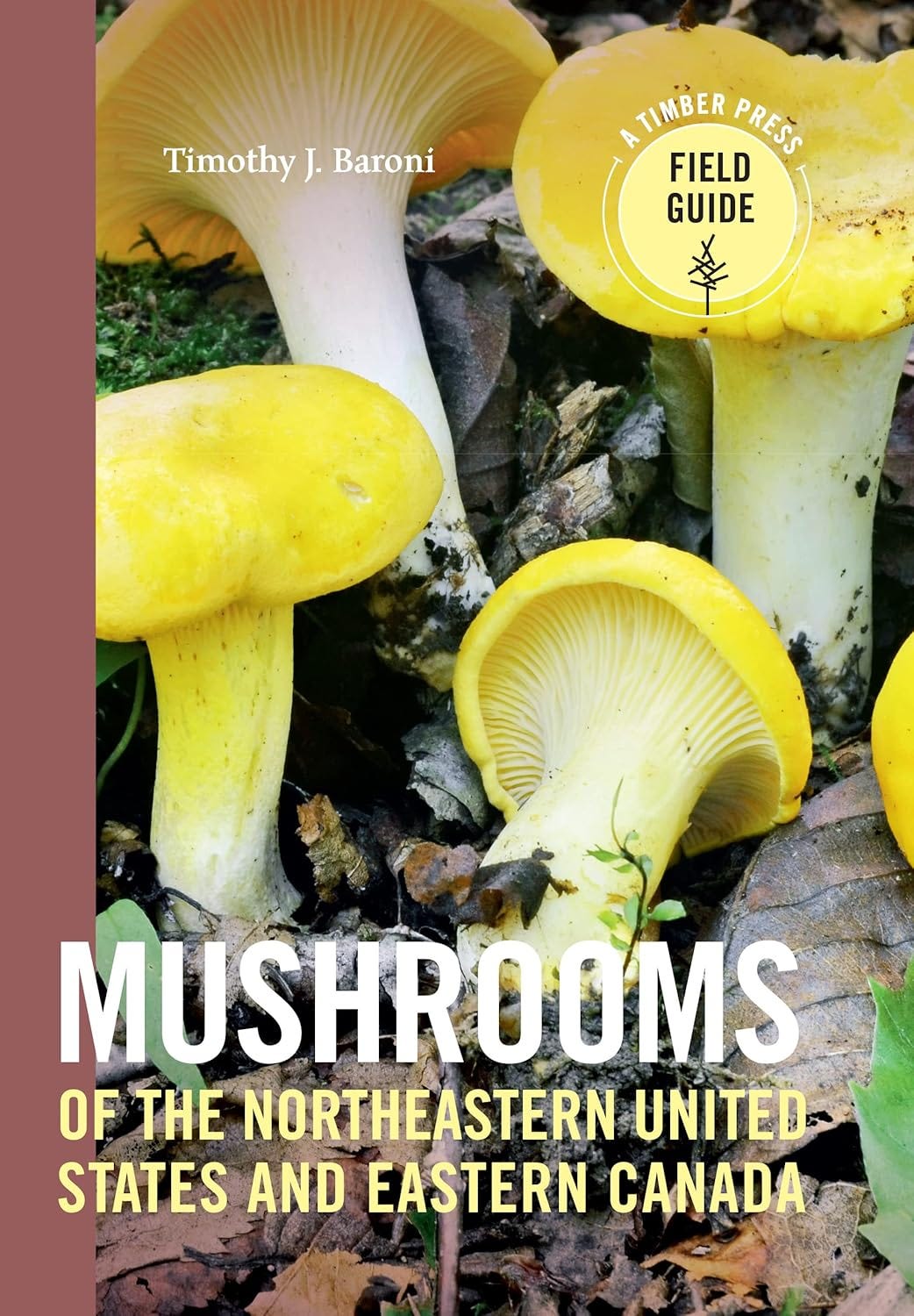
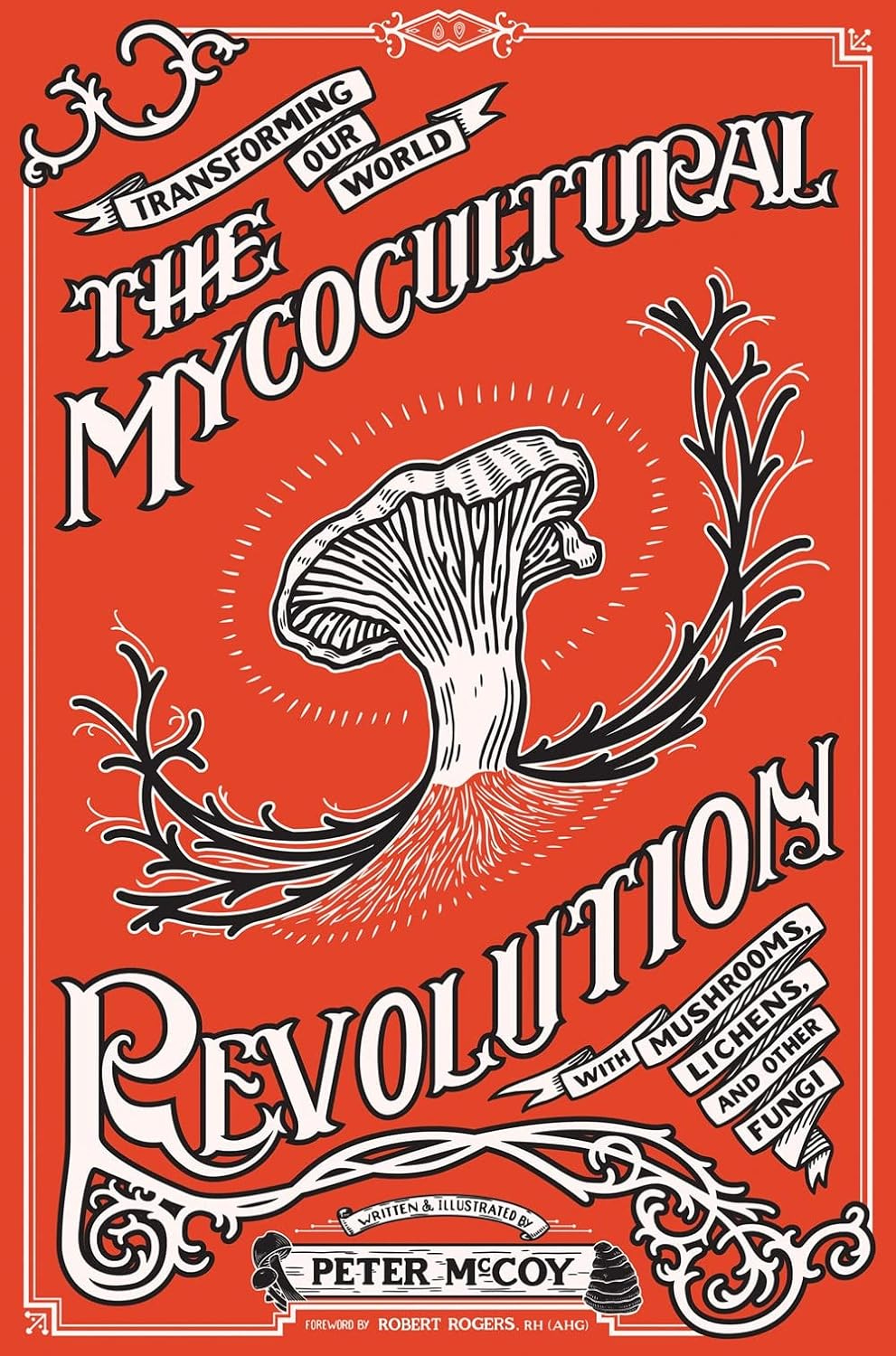


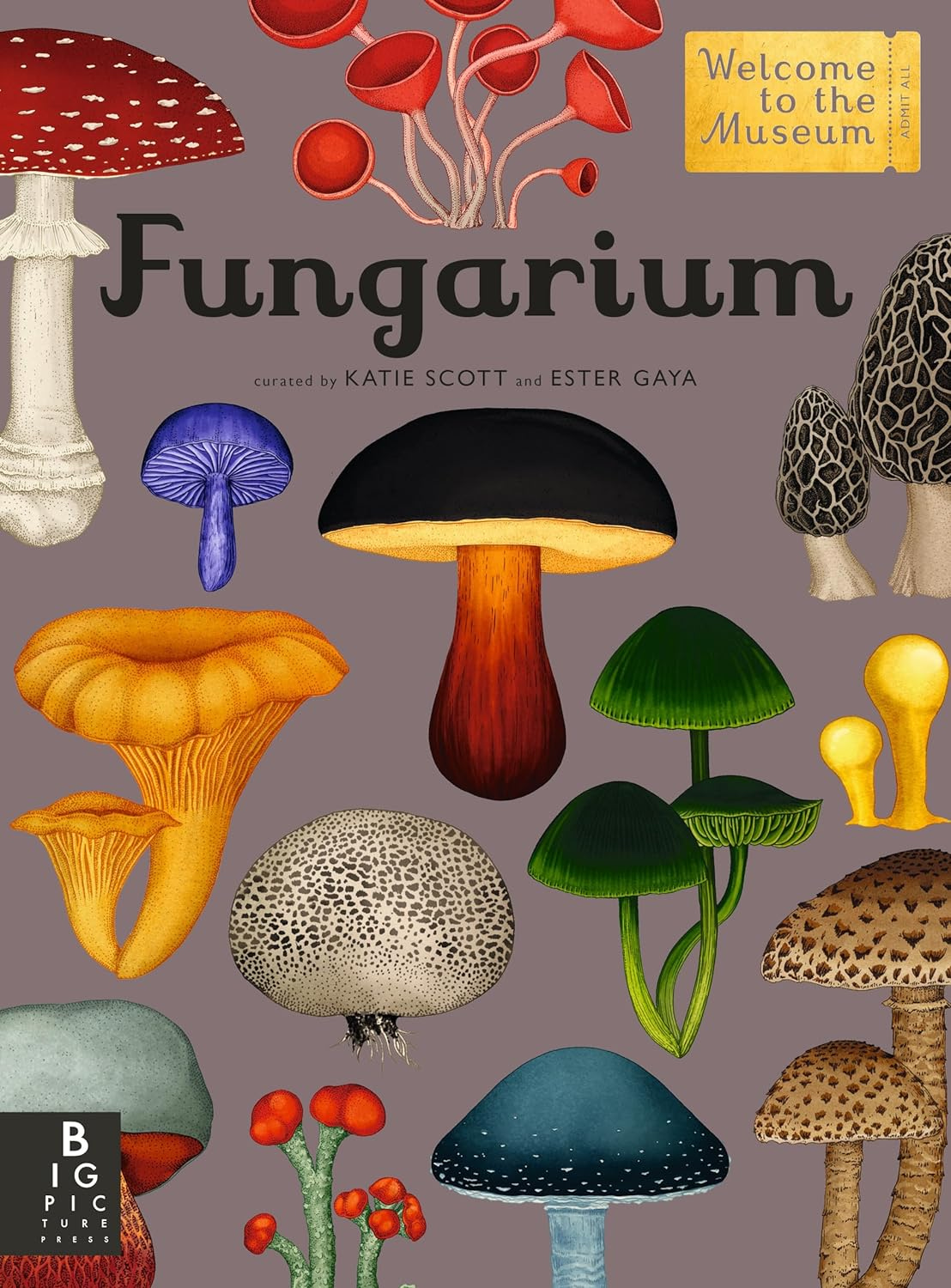


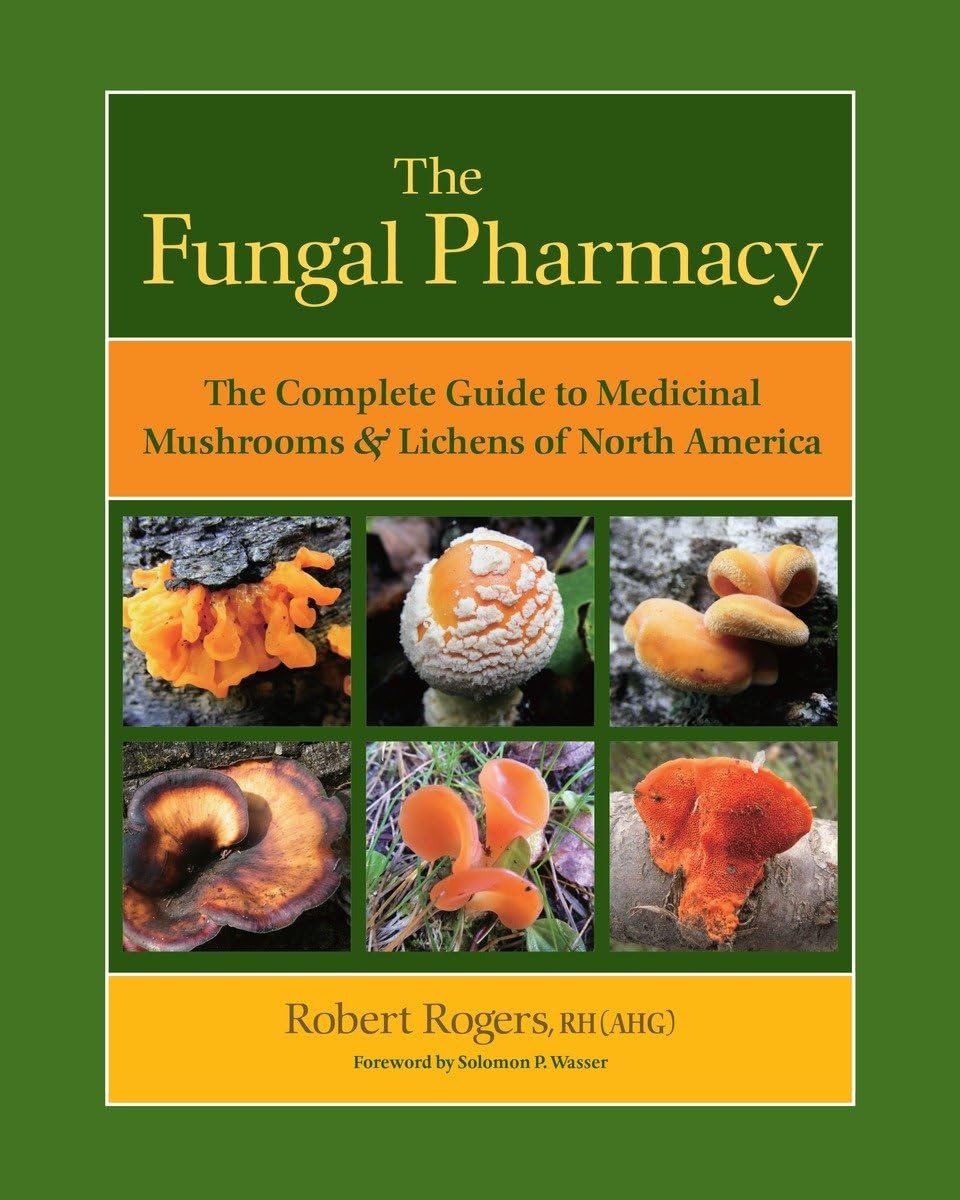

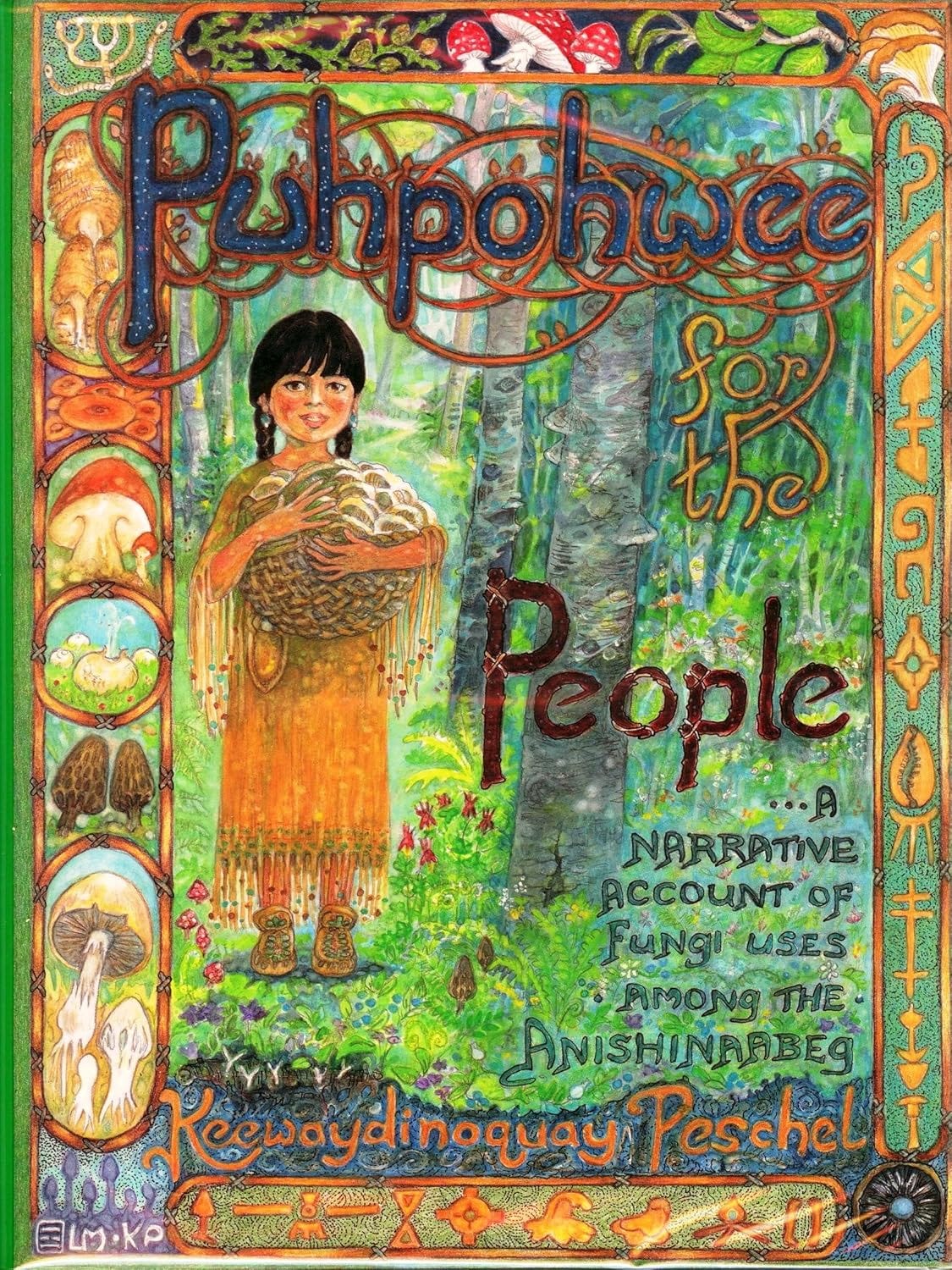




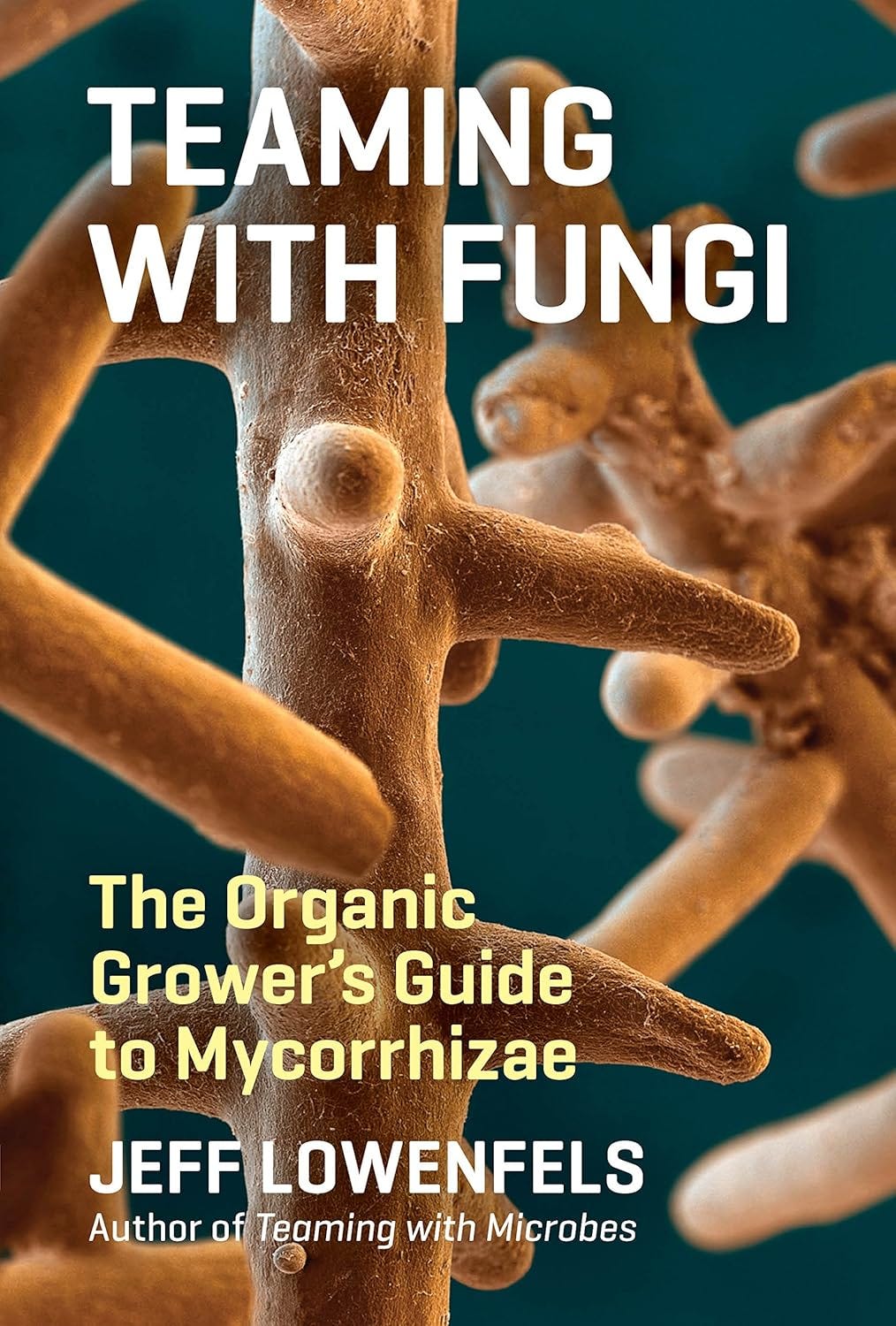
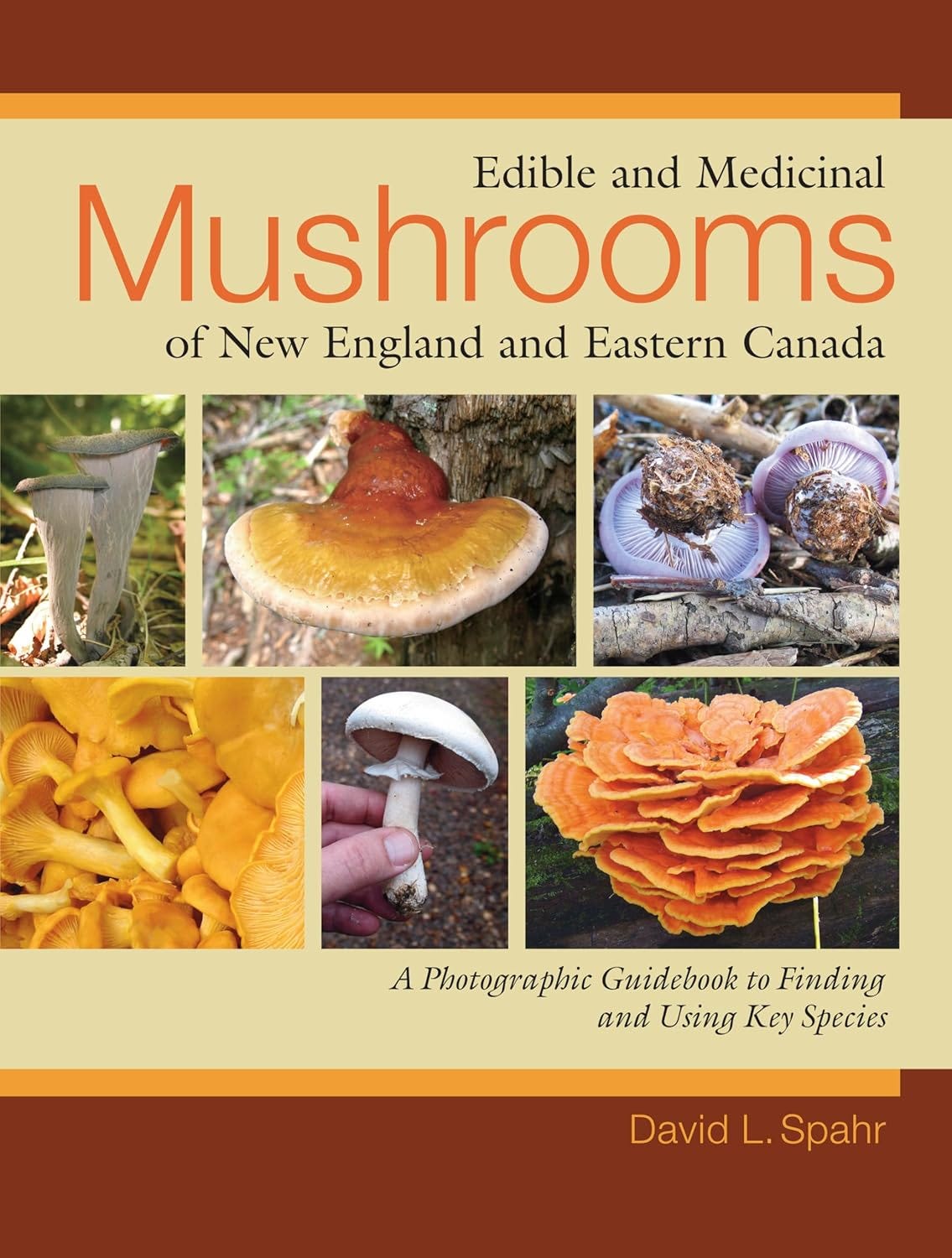



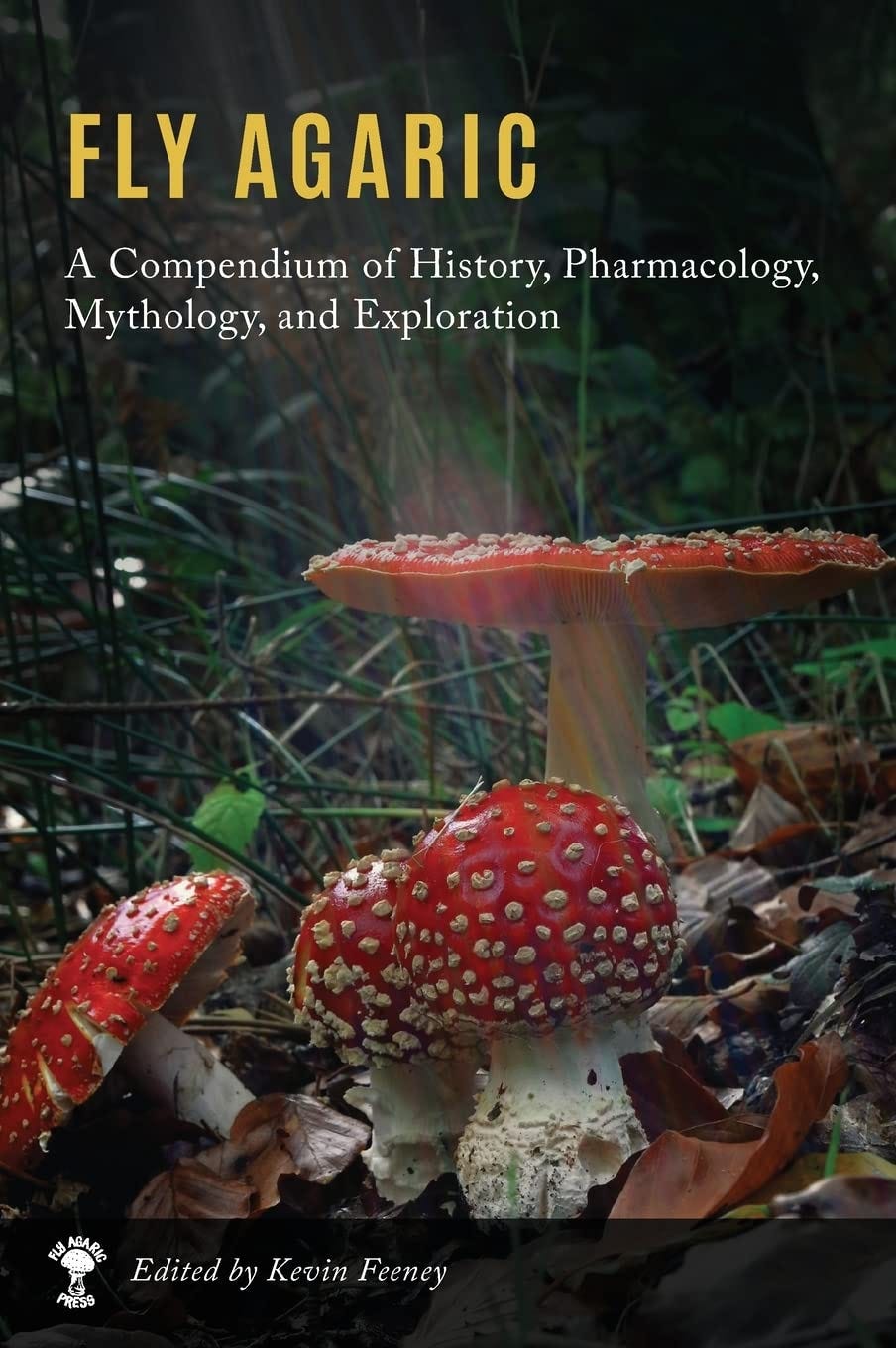
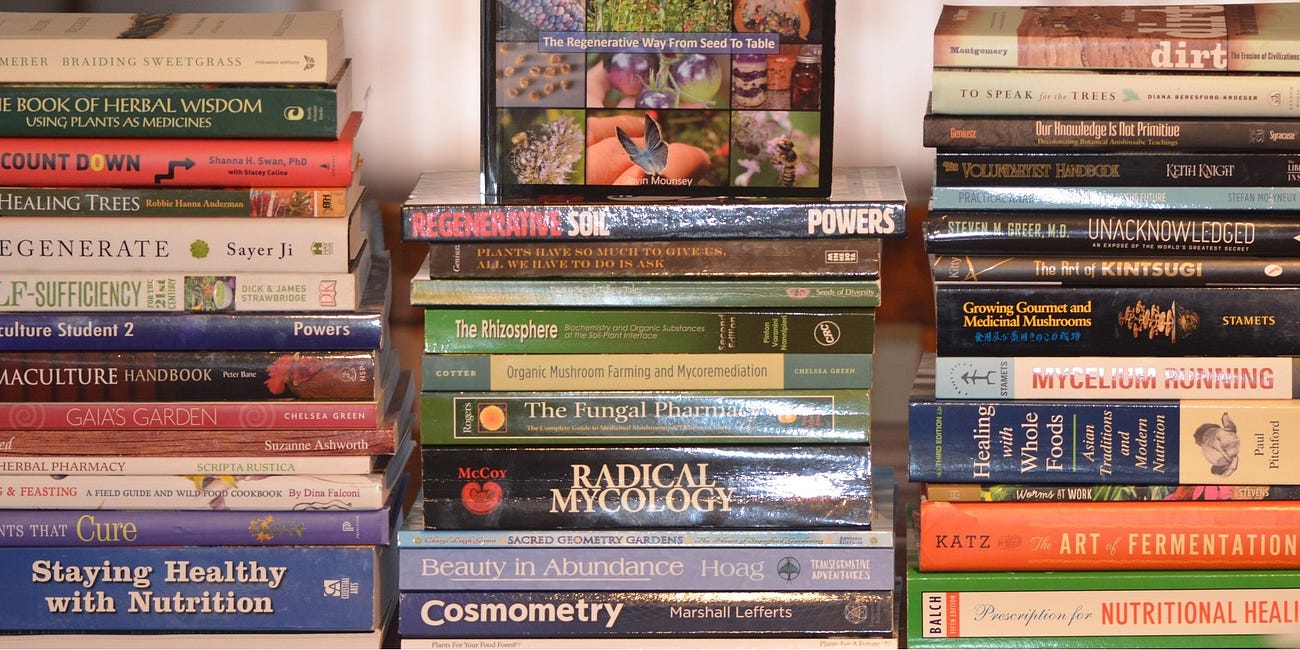
I doff mai shroomie cap to thee, O god of fungi Soon To Be...
Woof!
The queendom of fungi! I love that. I haven't been active, so this isn't an official vote, but I've heard Merlin Sheldrake interviewed and read his interview in Sun magazine and he's fascinating!